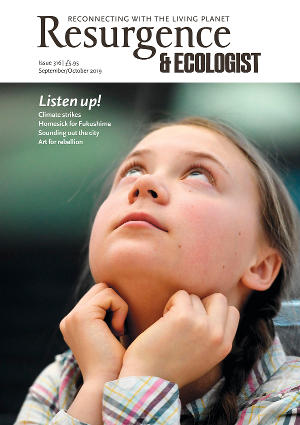The Anthropocene marks a turning point at which human life becomes legible in the Earth’s geologic record. Today, the imperial push and extractive pull of capitalist production can be read on and in the Earth itself.
What does it mean, then, to read and to write amid the dearth and deluge of anthropogenic climate crisis?
In their book Ecological Form, editors Nathan K. Hensley and Philip Steer focus this question on a specific and formative historical moment: the Industrial Revolution of the 19th century. “What can the Age of Coal tell us about the Age of Man?” they ask.
The book offers a number of answers to that question but also challenges us to consider “more elaborate modes of historical causality”. The volume’s contributors call upon readers, in Jesse Oak Taylor’s words, to “imagine a future retrospect” – that is, to think prospectively into what is to be done and undone in the millennia to come, and back into the deep time of geologic record.
Taylor’s sense of the “future retrospect” is galvanised by a reading of Alfred Lord Tennyson’s elegiac long poem, In Memoriam (1850), which opens his contribution to Ecological Form:
Arise and fly
The reeling Faun, the sensual feast;
Move upward, working out the beast,
And let the ape and tiger die.
What does it mean to encounter these lines in the midst of mass extinction, when Tennyson’s metaphor has worked its way into vexing fact? Taylor argues that “to read In Memoriam in the Anthropocene is … to encounter an ecological uncanny” – a real-unreal that forces what Tennyson knew, and what we know, into dynamic, productive opposition. Ecological Form holds both of these worlds in view at the same time, and in doing so broadens out the scope of literary studies from the page to the planet.
Hensley and Steer argue that “certain Victorian writers experimented with new formal techniques, and generated new models for thinking, in order to comprehend the two massively networked and often violent global systems that organized their experience … [of] the British Empire and the Industrial Revolution’s carbon economy”. An interconnection between these two systems, and a synthesis of post-colonial and ecological thinking, sits at the heart of their collection of essays and the broader trajectory of ecocritical thinking.
Already in the 19th century there was a prescient sense of the ways in which the incursion of steam-powered, hyperconnected modernity pressed upon modes of reading. In a miscellany of extracts intended for reading while travelling – Random Readings for the Rail, the River, and the Road; the Field, and the Fireside (1854), a kind of proto-Twitter – we read: “If hitherto time has been valuable, how much more so is it in this age of travelling by steam, and talking by lightning – of rapid movement, of quick transition, and of intense mental activity! … persons … must read as they run, or rather as they fly…” Here, infrastructural acceleration is so pervasive that it cajoles readers into new ways of thinking and doing. Running with this metaphor (if against its grain), with our knowledge of the cost of “flight” to our planet, we might think more about what is at stake in how – and what – we read.
Reading Ecological Form – an elegant and deeply considered ensemble of essays, each deftly argued and rigorously researched – a question remains about how we bring this kind of thinking into view in our everyday ‘random readings’. If the works discussed in the volume are, as Adam Grener argues, “mutually shaping, reciprocally expressive, and systematically interconnected”, how do we embed them more urgently and precisely in our own worldview? How do we harness the “future retrospect” to move forward into a world that must urgently confront the consequence of the marks humankind has left on the Earth?






